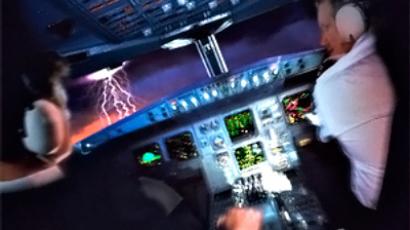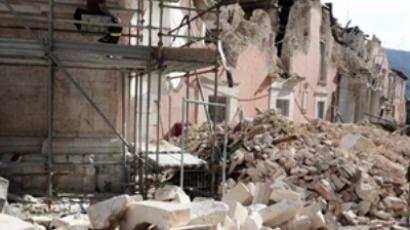No silver lining in air transportation nightmare
The air travel chaos caused by the volcanic eruption in Iceland has stranded tens of thousands of people in airports across Europe. Forecasters predict the disruption could continue into the middle of the week.
The crisis is entering its fifth day with airspace remaining closed in over twenty countries.
Around 300 airports across Europe remain paralyzed because of the cloud of volcanic ash that has spread above parts of Europe.
Some countries in Europe are partially lifting bans for flights, but most airlines are still banned from conducting flights and tens of thousands of passengers are stranded in the airports across the world trying to get to their destinations.
The European transport authorities say that over the last four days around 64,000 flights have been cancelled.
The British authorities are even considering the idea of using military ships to transport British passengers back.
In Russia alone, more than 400 flights have been cancelled and more than 70 delayed.
The meeting of EU transportation ministers dedicated to the issue is expected later on Monday.
Moreover, authorities are cooperating over visa issues, which is particularly important for Russians as Russia is not part of the Schengen area. Currently about 34,000 Russians cannot get back to the country.
Some companies have undertaken test flights into European air space to prove its safety.
However, European governments are still being criticized for mishandling the situation by underestimating its financial impact and providing little guidance to the airline industry.
Meanwhile, deputy head of the Institute of Geography of the Russian Academy of Sciences Arkady Tishkov has branded the safety measures “unnecessary” and described the situation as “air hysteria”.
“The overall hysteria surrounding this volcano eruption is totally unwarranted. Usually such eruptions last for several days, maybe months. This is not the largest volcano and often the plumes sent into atmosphere reach even greater heights. The scale of this eruption is not that great. What we are witnessing now is an unnecessary apocalyptic reaction. But there are no grounds for it. Some companies try to solve their problems at the expense of other people using volcanoes as an excuse,” Arkady Tishkov said.
“The measures taken by European officials have been excessive. Officials shouldn't have gotten involved in aviation matters in the first place. No proper tests were carried out to establish if it was safe to fly or not,” said former pilot Oleg Smirnov, the head of the Russian Civil Aviation Foundation. “Volcanoes do erupt from time to time and civil aviation has a set of rules on how to fly a plane in such conditions. Professional pilots know better
how to deal with a volcano eruption.”
Airlines continue to lose money over cancelled flights and expenses to keep stranded people at airports. Yet while airlines and airports across Europe have already suffered financial damage of more than $1 billion during the several days of flight bans, the ground transportation business is enjoying a boom.
People are trying to rent cars, use buses and trains instead of airplanes. In fact, sales for train tickets have rocketed.













